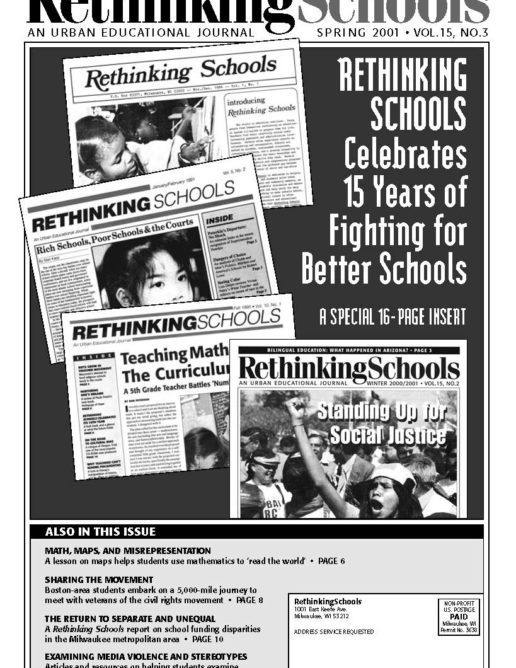Standards, Markets, and Creating School Failure
In education, symbolic politics counts. Diametrically opposite policies often are wrapped in exactly the same vocabulary, something neo-liberal and neo-conservative educational “reformers” have recognized all too well.
A fine example today is the struggle over the meaning of democracy. We are witnessing a major transformation of our understandings of democracy. Rather than democracy as a fundamentally political and educative concept, its meaning is being transformed into primarily an economic concept. Thus, democracy is increasingly being defined as consumer choice. The citizen is seen as a possessive individual, someone who is defined by her or his position in market relations.
When private is good and public is bad in education and so much else in this society, the world is seen as basically a supermarket, and democracy is seen as making choices in that market.
Among the key concepts now sliding around the map of meaning is standards. Indeed, the two movements, markets and standards / testing, go together, since markets can’t work unless the “consumer” has sufficient knowledge about whether a “product” is good or bad. Taken together, they can be truly damaging. I can think of no one who believes that having “standards” is bad, who believes that educators shouldn’t have high expectations for all students, or who believes that what we teach and whether we are successful shouldn’t be taken very seriously.
Thus, standards are “good.” But, this is basically a meaningless position. What counts as standards, who should decide them, where they should come from, what their purposes should be in practice, how they are to be used, what counts as meeting them – these are the real issues.
Many people think that having standards and testing them rigorously will lead to higher achievement, especially among our most disadvantaged children. Yet, like markets, such policies have been shown to just as often stratify even more powerfully by class and race, no matter what the rhetorical artifice used to justify them.
In all too many cases, the situation that has been created is the equivalent of an Olympic-length swimming pool in which a large number of children already drown. The response is to lengthen the pool from 100 meters to 200 meters and give everyone an “equal opportunity” to stand at the far end of the pool, jump in, and then swim the doubled length. But some children come from families who are affluent enough to have given their children swimming lessons or have sent them to expensive summer camps, while others couldn’t even swim the earlier length because of not having such economic advantages. Yes, we guaranteed “equality of opportunity,” but basically all we really did was put in place another stratifying device that ratified prior advantages in cultural and economic capital.
Given the role of Social Darwinist influences historically in education, influences that were nearly always described in democratic language, we need to be cautious not to assume that the overt intent to use standards to improve schools will be what actually happens in institutions that are already starved for sufficient resources, that have large numbers of teachers who are constantly treated as unworthy of respect, where the curricula and pedagogy are anything but responsive, and where economic and social policies have literally destroyed the employment, health, and housing of entire urban communities.
Yet, the growth of the movement for democratic schools, for critical curricula and teaching, and of such publications as Rethinking Schools, gives reason for hope. Even though this is a time when the right is gaining power, it is also a time when thousands of educators, community activists, critical scholars, students, and so many others in multiple communities and nations have shown that success can be won. I remain an optimist without illusions. A truly critical and democratic education will take hard and continuing organized work; but we know that it is possible.

